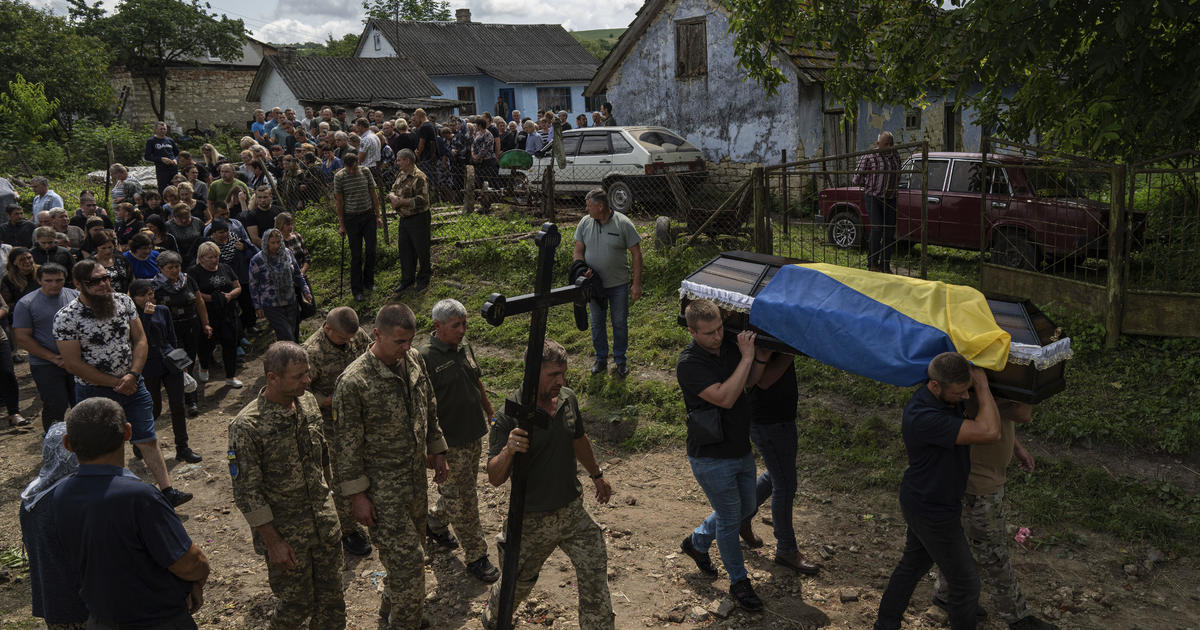
Mental health is another battlefront for Ukrainians in Russian war

At one day care center in Dnipro, Ukraine, children may only attend a nearby primary school in person for two to three hours at a time to protect their safety. Then, they must return to the church-run center to finish their studies so another shift of children can rotate into the school for classes. This is because the school’s bomb shelter can only accommodate a limited number of children when the air raid sirens inevitably sound.
“Our generation has children of war, and we must understand what we can do with them later when the war ends,” Serhii Vivchar, who runs the center, told CBS News.
More than two years after Russia launched its brutal invasion, the toll on Ukrainians’ mental health continues to climb every day. It affects everyone, from children to soldiers, women who are suddenly single mothers, refugees separated from their families and elderly men and women who cannot leave.
December 2023 study by the nonprofit refugee advocacy organization HIAS found that 26% of Ukrainians are experiencing psychological distress, including depressive symptoms. An estimated 1.5 million are at risk of having mental health disorders like depression and anxiety, the study found. Respondents with the lowest well being scores included women, Ukrainians in the hardest-hit south and east regions, people over 46 years of age and the poorest groups.
Although 85% of respondents pointed to life events as the main factors for their psychosocial distress, 38% said they thought the main cause must be character flaws, such as weakness.
Sacchetti said sleep deprivation, which exacerbates stress and other mental health struggles, is a huge problem. She works with teams who spend nights in the many bomb shelters across Ukraine.
“They keep saying, ‘we have sleeping issues, we have an entire country with sleeping issues,'” she said. “When you have alarms and sirens that start in the night or in the morning, that’s sleep deprivation.”
Moroz also suggested the U.S. delay in aid and weapons for Ukraine had heightened anxiety. Congress eventually passed a foreign aid package with $61 billion in aid for Ukraine in April, but it remains unclear when much of the desperately needed weapons and ammunition will arrive, or how much impact it will have on the front-line battles that Ukraine has, in recent months, been losing.
Some Ukrainian soldiers Moroz met said they were grateful for the latest promise of U.S. aid, but they’ve already waited for months, as supplies and ammunition dwindled and deaths mounted.
“It was like the air was sucked out of the system,” Moroz said, “and there was a skepticism about, ‘we don’t know how quickly this aid is going to get here.'”
The latest round of Ukrainian aid includes some mental health funding from the U.S. Agency for International Development (USAID), Sacchetti noted.
The Ukrainian government is also working to provide more mental health resources, Sacchetti said, but for now, fighting the war remains its primary concern.
“It’s important that everyone understands that even when we pass the emergency, that’s the moment that people will need the most,” Sacchetti said. “There needs to be attention to long-term recovery.”
Moroz encouraged Americans to give to organizations supporting the mental, physical, emotional and spiritual needs of Ukrainians.
Ukrainians need to know they’re not forgotten, Vivchar said.
“When Americans visit Ukraine … we see how God reminds us, you are not alone,” Vivchar said.
More
Source: cbsnews.com